Politics
H-1B workers abroad race to US as Trump order sparks dismay, confusion
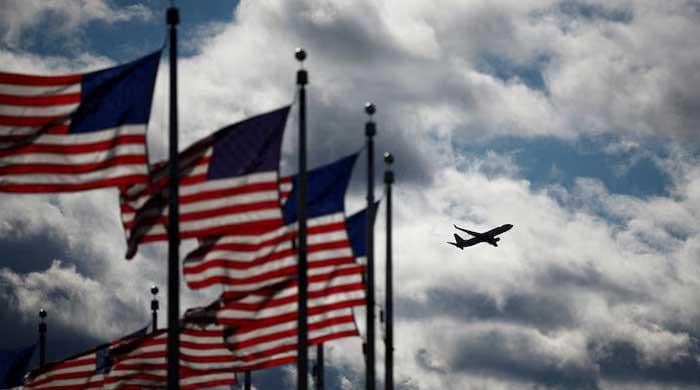
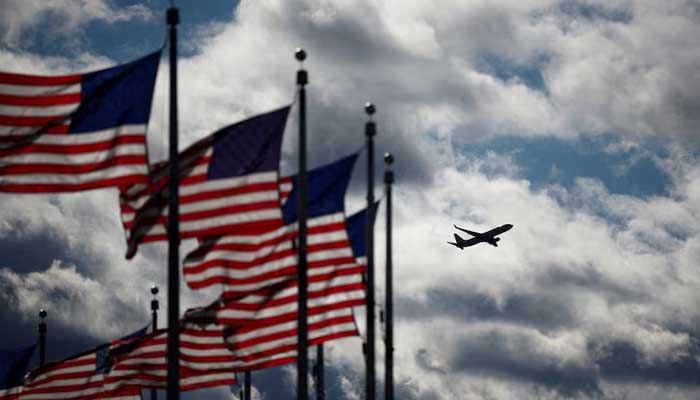
- Tech firms urge employees to return amid visa fee confusion.
- Trump’s visa fee order causes panic among H-1B holders.
- Debate over H-1B visa programme’s impact on US labour market.
NEW YORK: Panic, confusion, and anger reigned as workers on H-1B visas from India and China were forced to abandon travel plans and rush back to the US after President Donald Trump imposed new visa fees, in line with his wide-ranging immigration crackdown.
Tech companies and banks sent urgent memos to employees, advising them to return before a deadline of 12:01am. Eastern Time Sunday (4:01 am GMT), and telling them not to leave the country.
A White House official on Saturday clarified that the order applied only to new applicants and not holders of existing visas or those seeking renewals, addressing some of the confusion over who would be affected by the order.
But Trump’s proclamation a day before had already set off alarm bells in Silicon Valley.
Rush back to US
Fearing they would not be allowed back once the new rule took effect, several Indian nationals at San Francisco airport said they cut short their vacations.
“It is a situation where we had to choose between family and staying here,” said an engineer at a large tech company whose wife had been on an Emirates flight from San Francisco to Dubai that was scheduled to depart at 5:05pm local time (12:05am GMT) on Friday.
The flight was delayed by more than three hours after several Indian passengers who received news of the order or memos from their employers demanded to deplane, said the person who spoke on condition of anonymity. At least five passengers were eventually allowed off, said the engineer.
A video of the incident was circulating on social media, showing a few people leaving the plane. Reuters could not independently verify the veracity of the video.
The engineer’s wife, also a H-1B visa holder, chose to head to India to care for her sick mother. “It’s quite tragic. We have built a life here,” he told Reuters.
On the popular Chinese social media app Rednote, people on H-1B visas shared their experiences of having to rush back to the US – in some cases just hours after landing in China or another country.
Some likened the panic they felt to their experience during the COVID-19 pandemic, when they urgently flew back to the US before a travel ban took effect.
“My feelings are a mix of disappointment, sadness, and frustration,” said one woman in a post with a user handle “Emily’s Life in NY.”
The woman said she had boarded a United Airlines flight from New York to Paris, which started taxing, but after some back-and-forth with the airline, the captain agreed to return to the gate to let her off the aircraft.
Feeling what she described to Reuters as “insignificant” and “shaken,” she cancelled the planned trip to France, abandoning plans with friends, including some who were flying in from China, after she received a letter from her company’s lawyers asking employees abroad to return to the US.
Companies including Microsoft, Amazon, Alphabet and Goldman Sachs were among those that sent urgent emails to their employees with travel advisories.
Trump’s U-turn on H-1B
Since taking office in January, Trump has kicked off a wide-ranging immigration crackdown, including moves to limit some forms of legal immigration.
This step to reshape the H-1B visa program represents his administration’s most high-profile effort yet to rework temporary employment visas and underscores what critics have said is a protectionist agenda.
It is a U-turn from Trump’s earlier stance when he sided with one-time ally and Tesla CEO Elon Musk in a public dispute over the use of the H-1B visa, saying he fully backed the program for foreign tech workers even though it was opposed by some of his supporters.
Trump administration officials say the visa allows companies to suppress wages, and curbing it opens more jobs for American tech workers. Supporters of the program argue that it brings in highly skilled workers essential to filling talent gaps and keeping firms competitive.
In the hours following Trump’s proclamation, social media was flooded with debate on the scope of the order and dismay at what many saw as a move that dimmed America’s lure as an attractive destination to work in.
An anonymous user on Rednote said their life was like that of a “H-1B slave.” The person cut short a holiday in Tokyo to rush back to the United States, describing it as “a real-life ‘Fast & Furious’ return to the US,” a reference to the hit Hollywood series about street racing.
Trump’s H-1B proclamation read: “Some employers, using practices now widely adopted by entire sectors, have abused the H-1B statute and its regulations to artificially suppress wages, resulting in a disadvantageous labour market for American citizens.”
The Secretary of Homeland Security, Kristi Noem, could exempt petitioners from the fee at her discretion, the proclamation said.
Commerce Secretary Howard Lutnick on Friday said companies would have to pay $100,000 per year for H-1B worker visas.
However, White House spokesperson Karoline Leavitt said in a post on X on Saturday that this was not an annual fee, only a one-time fee that applied to each petition.
A Nvidia engineer, who has lived in the US for 10 years, told Reuters at the San Francisco airport that he had been vacationing in Japan with his wife and infant when he rushed to reschedule his return flight after hearing the news.
“It feels surreal,” he said. “Everything is changing in an instant.”
Politics
Trump says Pakistani PM’s ‘saving 10 million lives’ remark is an honour
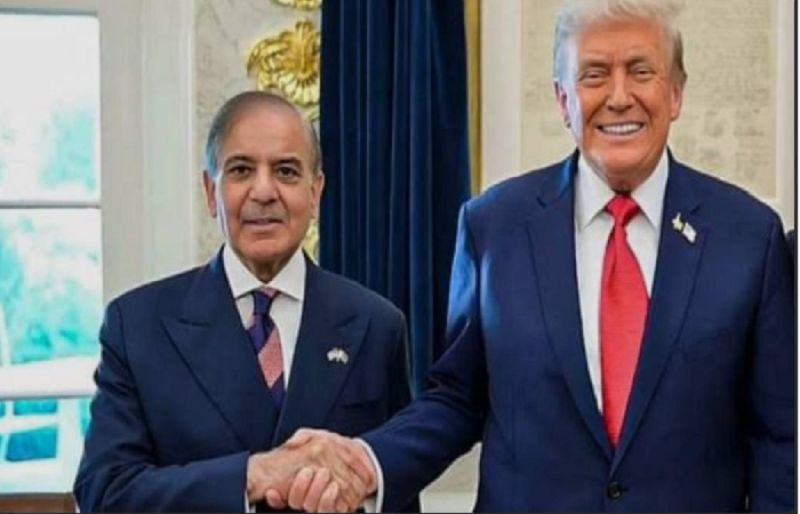
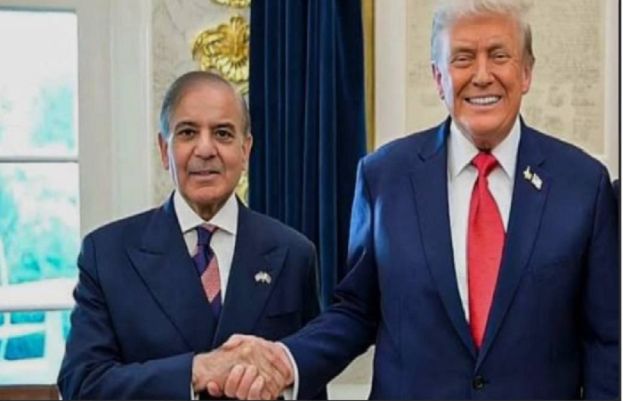
US President Donald Trump has reiterated his claim of having stopped a war between Pakistan and India, while also saying that Pakistan Prime Minister Shehbaz Sharif thanked him for saving at least 10 million lives.
He made the remarks at the renaming of Southern Boulevard to Donald J Trump Boulevard in Washington on Friday.
“In a year, we made eight peace deals and ended the conflict in Gaza. We have peace in the Middle East…We stopped India and Pakistan from fighting, two nuclear nations…The Pakistani Prime Minister said Donald Trump saved at least 10 million people, and it was amazing,” he said.
The US president further recalled that the Pakistani prime minister’s remarks were an honour for him.
Trump cited his administration’s foreign policy record and repeated assertions of brokering peace between the two nuclear-armed neighbours.
Trump has made similar claims multiple times since May 10 last year, arguing that US pressure helped defuse tensions between India and Pakistan.
Politics
Saudi King Salman leaves hospital after medical tests
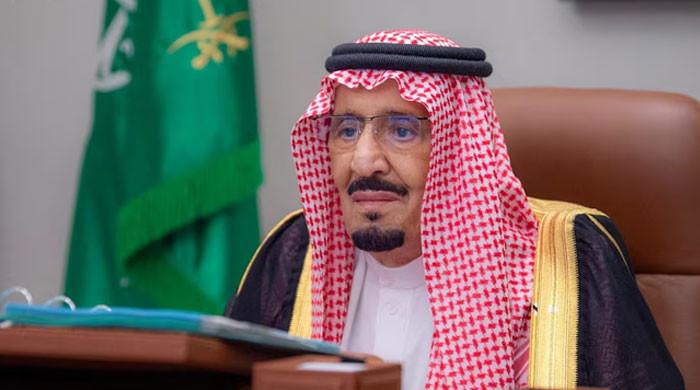
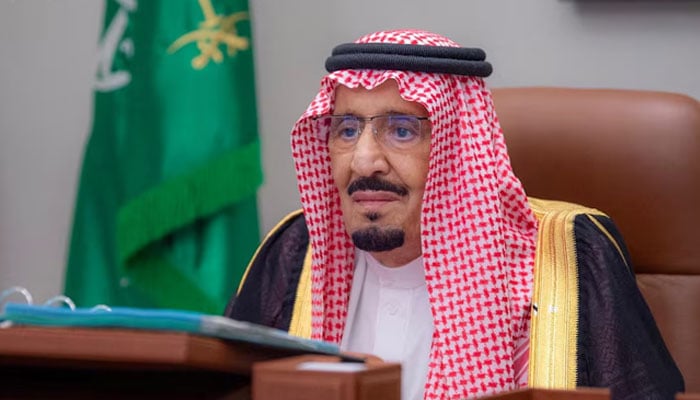
Saudi Arabia’s 90-year-old King Salman was discharged from hospital after undergoing medical tests in the capital Riyadh, the kingdom’s Royal Court said on Friday, adding that the results were “reassuring”.
The monarch “left the King Faisal Specialist Hospital in Riyadh today (Friday) after undergoing medical tests that proved reassuring”, the royal court said in a statement shared on state media, having announced his admission earlier in the day.
Saudi Arabia, the world’s biggest crude oil exporter, has for years sought to quell speculation over King Salman’s health.
He has been on the throne since 2015, though his son Mohammed bin Salman was named crown prince in 2017 and acts as de facto ruler.
The monarch’s well-being is rarely discussed, but he has been admitted for surgery and tests on multiple occasions in recent years.
In 2024, the Royal Court said he suffered from lung infections, which he recovered from.
He was hospitalised in May 2022, when he went in for a colonoscopy and stayed for just over a week for other tests and “some time to rest”, the official Saudi Press Agency reported at the time.
He was also admitted to hospital in March 2022 to undergo what state media described as “successful medical tests” and to change the battery of his pacemaker.
In 2020, he underwent surgery to remove his gall bladder.
Politics
Trump welcomes Iran move on mass executions as turmoil eases
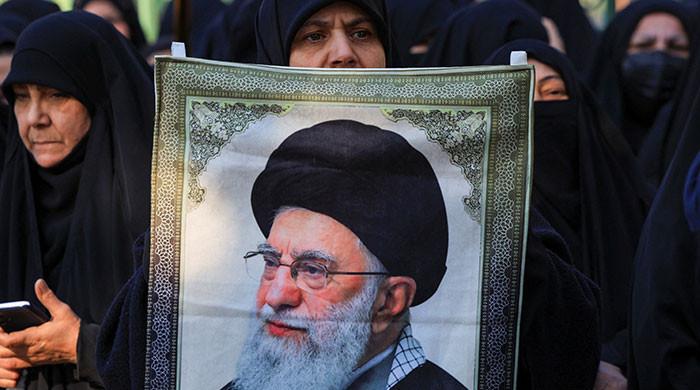
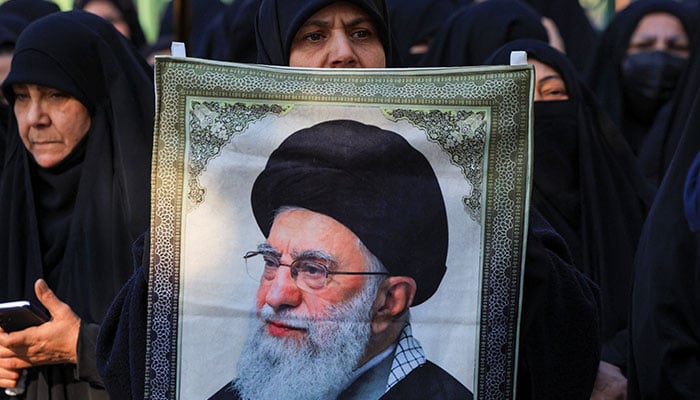
- Trump says Iran cancelled mass hangings of protesters.
- Thanks Tehran, calls move ‘greatly respected’.
- Claims more than 800 executions were scheduled.
DUBAI: US President Donald Trump has thanked Iran’s leaders for cancelling what he said were hundreds of planned executions of protesters after a crackdown.
Taking to his social media platform, he said the mass hangings had been called off and praised Tehran for the move, as deadly unrest across the country appears to be easing after a harsh crackdown.
US President Donald Trump, whose repeated threats to act had included a vow to “take very strong action” if Iran executed protesters, said Tehran’s leaders had called off mass hangings.
“I greatly respect the fact that all scheduled hangings, which were to take place yesterday (Over 800 of them), have been cancelled by the leadership of Iran. Thank you!” he posted on social media.
Iran has not publicly announced plans for such executions or said it had cancelled them.
The protests erupted on December 28 over economic hardship and swelled into widespread demonstrations calling for the end of present rule, culminating in mass violence at the end of last week. According to opposition groups and an Iranian official, more than 2,000 people were killed in the worst domestic unrest since Iran’s 1979 Islamic Revolution.
But several residents of Tehran reached by Reuters said the capital had now been comparatively quiet for four days. Drones were flying over the city, but there had been no sign of major protests on Thursday or Friday. Another resident in a northern city on the Caspian Sea said the streets there also appeared calm. The residents declined to be identified for their safety.
Prospect of US attack retreats
The prospect of a US attack has retreated since Wednesday, when Trump said he had been told killings in Iran were easing. But more US military assets were expected to arrive in the region, showing the continued tensions.
US allies, including Saudi Arabia and Qatar, conducted intense diplomacy with Washington this week to prevent a US strike, warning of repercussions for the wider region that would ultimately impact the United States, a Gulf official said.
Israel’s intelligence chief David Barnea was also in the US on Friday for talks on Iran, according to a source familiar with the matter, and an Israeli military official said the country’s forces were on “peak readiness”.
As an internet blackout eased this week, more accounts of the violence have trickled out.
One woman in Tehran told Reuters by phone that her daughter was killed a week ago after joining a demonstration near their home.
“She was 15 years old. She was not a terrorist, not a rioter. Basij forces followed her as she was trying to return home,” she said, referring to a branch of the security forces often used to quell unrest.
The US is expected to send additional offensive and defensive capabilities to the region, but the exact make-up of those forces and the timing of their arrival was still unclear, a US official said, speaking on condition of anonymity.
The US military’s Central Command declined to comment, saying it does not discuss ship movements.
Pahlavi calls for increased pressure
Reza Pahlavi, the US-based son of Iran’s last shah who has gained increasing prominence as an opposition figure, on Friday urged the international community to ramp up pressure on Tehran to help protesters overthrow the present setup.
“The Iranian people are taking decisive action on the ground. It is now time for the international community to join them fully,” said Pahlavi, whose level of support inside Iran is hard to gauge.
Trump this week appeared to downplay the idea of US backing for Pahlavi, voicing uncertainty that the exiled royal heir who has courted support among Western countries could muster significant backing inside Iran. Pahlavi met US envoy Steve Witkoff last weekend, Axios reported.
Iranian-Kurdish rights group Hengaw said that there had been no protest gatherings since Sunday, but “the security environment remains highly restrictive”.
“Our independent sources confirm a heavy military and security presence in cities and towns where protests previously took place, as well as in several locations that did not experience major demonstrations,” Norway-based Hengaw said in comments to Reuters.
Reports of sporadic unrest
There were, however, still indications of unrest in some areas. Hengaw reported that a female nurse was killed by direct gunfire from government forces during protests in Karaj, west of Tehran. Reuters was not able to independently verify the report.
The state-affiliated Tasnim news outlet reported that rioters had set fire to a local education office in Falavarjan County, in central Isfahan Province, on Thursday.
An elderly resident of a town in Iran’s north-western region, where many Kurdish Iranians live and which has been the focus for many of the biggest flare-ups, said sporadic protests had continued, though not as intensely.
Describing violence earlier in the protests, she said: “I have not seen scenes like that before.”
Video circulating online, which Reuters was able to verify as having been recorded in a forensic medical centre in Tehran, showed dozens of bodies lying on floors and stretchers, most in bags but some uncovered. Reuters could not verify the date of the video.
The state-owned Press TV cited Iran’s police chief as saying calm had been restored across the country.
A death toll reported by US-based rights group HRANA has increased little since Wednesday, now at 2,677 people, including 2,478 protesters and 163 people identified as affiliated with the government.
Reuters has not been able to independently verify the HRANA death toll. An Iranian official told the news agency earlier this week that about 2,000 people had been killed.
The casualty numbers dwarf the death toll from previous bouts of unrest that have been suppressed by the state, including in 2009 and 2022.
-

 Tech4 days ago
Tech4 days agoNew Proposed Legislation Would Let Self-Driving Cars Operate in New York State
-

 Sports6 days ago
Sports6 days agoClock is ticking for Frank at Spurs, with dwindling evidence he deserves extra time
-
Sports1 week ago
Commanders go young, promote David Blough to be offensive coordinator
-

 Fashion6 days ago
Fashion6 days agoSouth India cotton yarn gains but market unease over US tariff fears
-

 Entertainment4 days ago
Entertainment4 days agoX (formerly Twitter) recovers after brief global outage affects thousands
-

 Fashion6 days ago
Fashion6 days agoChina’s central bank conducts $157-bn outright reverse repo operation
-

 Business1 week ago
Business1 week agoSoftBank reduces Ola Electric stake to 13.5% from 15.6% – The Times of India
-

 Sports6 days ago
Sports6 days agoUS figure skating power couple makes history with record breaking seventh national championship






